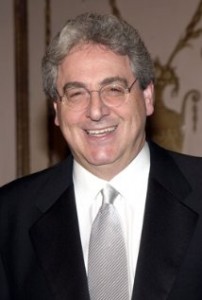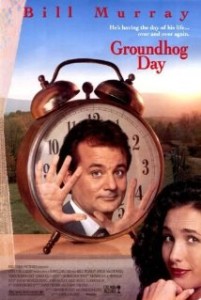
Harold Ramis, 69, passed away February 24th in his Chicago home after losing a four-year battle with vasculitis, an autoimmune disease. Ramis is best known for playing Dr. Egon Spengler in both Ghostbusters and Ghostbusters 2, but you are probably familiar with a lot more of his work and didn’t even know it.
In addition to acting in the Ghostbusters films, Ramis also co-wrote the script with Dan Aykroyd, but his involvement with the franchise didn’t end there. He also wrote for the Ghostbusters video games, The Real Ghostbusters and the Extreme Ghostbusters TV Shows and he had planned on writing a reunion script for Ghostbusters 3 as well. Sadly, that never came to be.
Ramis’ background is as varied as his current resume. He got his start is comedy as a joke editor and review for Playboy magazine. In 1969, he became part of Chicago’s Second City Improvisational Theatre Troupe and in 1976, he became the head writer and performer for SCTV, sort of a Canadian version of Saturday Night Live. He frequently took small roles in his films and cast many of his friends from Second City Alumni in his films including Bill Murray, Rick Moranis and John Belushi. His first movie to write for was 1978 raunchy comedy Animal House followed by Meatballs, Caddyshack and Stripes, each starring Bill Murray. His first directing role was for Caddyshack and his last was four episodes for NBC’s The Office. Most of his films were hits, but he did have a few flops including 2000’s Bedazzled and 2009’s Year One.

Ramis was involved in pretty much every area of filmmaking including acting, writing, directing and producing. He wrote or co-wrote what some consider to modern comedy movie classics. His movies ranged from the raunchy to fairly tame. It can be argued that Ramis’ greatest work has to have been 1993’s Groundhog Day, which he served as producer and director as well. Co-written by Danny Rubin, it starred Bill Murray and Andie MacDowell about a self-absorbed guy stuck to relive the same day until he learns his lesson. It is said that Murray wasn’t happy with it because he wanted the story to be more philosophical, but Ramis just wanted it be a comedy.
Born in Chicago and finished out his life there too, Harold Ramis is survived by his wife, Erica Ramos; sons Julian and Daniel; daughter, Violet, and two grandchildren.

